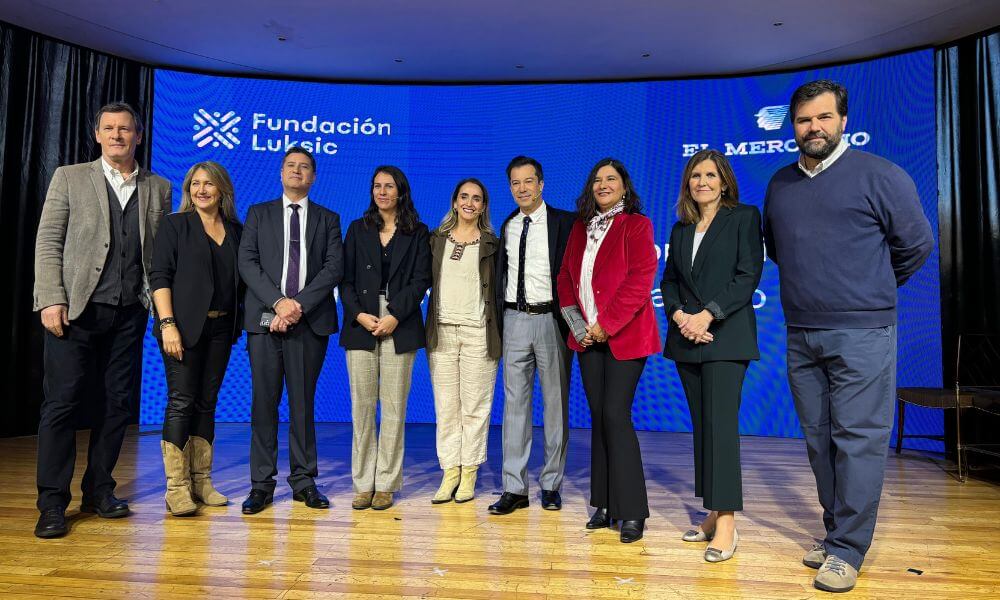According to UN data, by 2050, 75% of jobs will be related to STEM fields. These areas are considered key to the development of nations, as they not only drive technological and scientific innovation but also address the major social challenges of the 21st century, fostering population well-being and inclusive development.
However, the gender gap remains a significant challenge. In Chile, as of 2024, only 30% of those enrolled in STEM higher education programs were women. Moreover, 3 out of 10 women who have studied these fields are not working in their respective areas.
The impact of having fewer women in STEM on national development, the main barriers women face in entering these fields, and how to encourage more women to study and work in STEM were the key topics addressed during the seminar “Empowering Chile: STEM Education for National Development,” organized by the Luksic Foundation and El Mercurio.
The event attracted over 180,000 viewers via the Emol TV streaming platform. The first panel, “STEM Careers and Gender: Challenges for Chile’s Development,” explored the obstacles women face in pursuing and working in these disciplines. The panel featured Isabella Luksic, CEO of Luksic Foundation; Lucas Palacios, Rector of Inacap; Ramón Iriarte, UNESCO Education Program Specialist; and Marcela Oyarzún, Strategic Director of the Encuentros del Futuro Foundation.
“STEM careers offer greater and better opportunities in terms of employability and competitive salaries, but they also develop skills that are crucial for the future workforce, such as creativity and innovation. We cannot afford to exclude half of the population. If more women thrive in these fields, not only do they enhance their personal life trajectories, but they also make a significant contribution to Chile’s development,” highlighted Isabella Luksic.
Lucas Palacios added, “Education is a long-term project. If we want equal opportunities by 2050, we need to focus on expanding access to STEM fields for women and, most importantly, on implementing strategies for retention and persistence.”
The second panel, “STEM Skills, Employability, and Productivity for Chile,” focused on the workforce integration of women in STEM fields and its impact on the country’s productivity. Panelists included Jeannette Escudero, Executive Director of Talento Digital para Chile; Ramón Rodríguez, CEO of Trabajando.com; Georgeanne Barceló, VP of People and Organization at AMSA; and Raphael Bergoeing, President of the National Productivity Commission.
One of the points discussed was that Chile ranks 31st out of 33 OECD countries in the labor equity index. Raphael Bergoeing pointed out that “the gender gap leads to less innovation and less prosperity. From an economic perspective, it’s clear that if we aim to prosper, if we seek to do more with less, we are currently excluding a significant source of that advancement.”
Jeannette Escudero emphasized that “collaboration is crucial to encouraging more women to develop in STEM fields. Civil society organizations, businesses, and the state must work together and coordinate efforts.”
The full seminar is available on Emol TV

